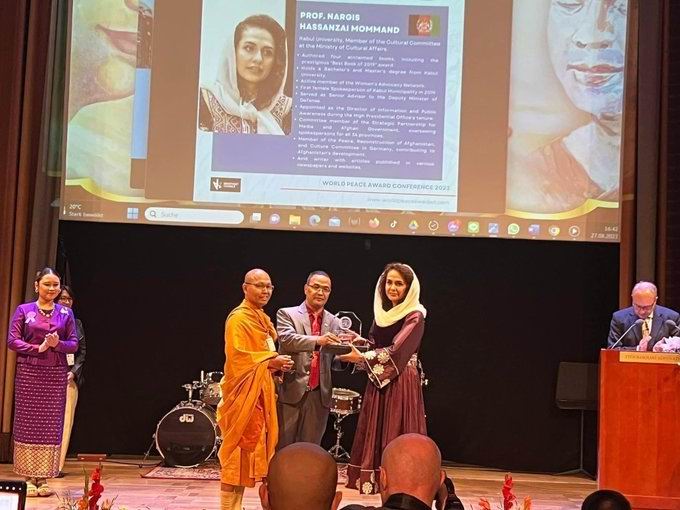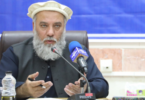KABUL (Khaama Press): Nargis Mommand Hassanzai, an Afghan woman, has clinched the 2023 World Peace Prize in Sweden. Her resolute commitment to human rights has earned global recognition, showcasing the potential of individuals to drive positive change even in the face of adversity. Hassanzai conveyed her heartfelt gratitude for the honour on her social media platform, X, “I wish to extend my deepest gratitude for the honour of being awarded the World Peace Award 2023. It is with great humility that I accept this prestigious recognition, and I am sincerely thankful to all those who have supported and contributed to my journey towards promoting peace.” Her journey encompasses a resilient fight against oppression, inequality, freedom of speech, and gender injustice. This award is a significant accomplishment for Afghan women, representing two years of solid commitment to overcoming challenges in education and society. Hassanzai was a former Kabul University lecturer and a human rights advocate. This award acknowledges her dedicated work in Afghanistan. This award signifies the relentless struggle of Afghan women against injustice and suppression policies against women, as well as the resolute endeavour to reshape their country, promoting justice and equality. Nargis Hassanzai’s profound impact lifts the veil of darkness shrouding Afghan women’s lives, revealing the shadow over their rights, humanity, and their country’s portrayal. She is making a difference by securing scholarships and contributing to Afghan women’s football, acknowledged by FIFA. Her efforts led to official recognition of Afghan women’s football and participation in European competitions. In 2023, the Nobel Prize from Sweden celebrated Afghanistan’s unwavering resilience, sharing the extraordinary essence of the Afghan people with nations worldwide. The resurgence of the Taliban in Afghanistan has had a dire impact on the fundamental rights of women in the country. One of the most distressing consequences is denying their rights to education and employment, effectively confining them to their homes. The absence of women in educational institutions and the workforce not only limits their personal growth but also stifles innovation and progress within the country.







